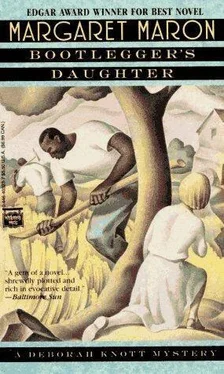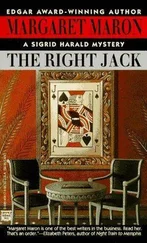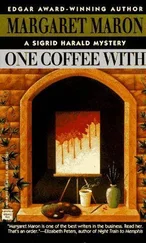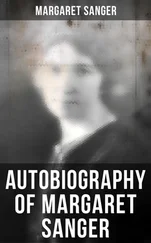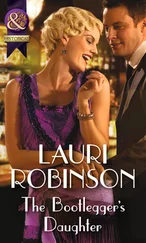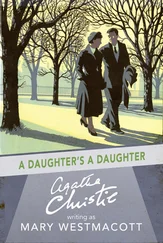At the piano to the left of the pulpit, the fifteen-year-old pianist rippled flawlessly through a handful of chords, and the youth choir stood and sang:
Yield not to temptation, for yielding is sin;
Each vict’ry will help you some other to win…
Be thoughtful and earnest, kind-hearted and true.
Look ever to Jesus. He’ll carry you through.
Don’t tell me God doesn’t have a sense of humor.
Abashed, I consciously subdued vainglorious thoughts and tried to put myself into a properly reverential mood.
No one else ever seems to have the same trouble concentrating in church that I do. Aunt Zell’s face was smoothly contemplative beside me. Beyond her, my brother Seth and his wife sat in stolid meditation. Across the aisle and two rows nearer the pulpit, the patrician profiles of Dr. and Mrs. Vickery were inclined attentively to the minister’s closing remarks. Even the teenagers in the choir seemed to be taking his words deeply to heart. Of course, I suppose a casual observer might say the same of me. I wasn’t actively fidgeting or coughing or turning my head. Only my eyes roamed the church.
They came to rest on the Vickerys again and I idly wondered what they were even doing here at Sweetwater. Evelyn Dancy Vickery’s personal wealth was well beyond “comfortable.” Dr. Charles Vickery had been our family GP, but he’d retired before routine lawsuits and astronomical insurance rates ate into a doctor’s income, so together they were probably even a few zeroes past “affluent.” I was under the impression that they usually worshipped at First Baptist of Cotton Grove where “Almost Persuaded” on a piano had been replaced by organ chorales.
Then I remembered that Dancys had helped found Sweetwater and many of Mrs. Vickery’s forebears were buried out there in the churchyard.
After Janie died, Jed moved in with his parents so Mrs. Whitehead could help with Gayle. Then he went into business with his father, married Dinah Jean Raynor, and bought the Higgins place on South Third. But when I first used to baby-sit with Gayle, Jed and Janie lived in a modest little house with a backyard that bumped up against the Vickery grounds.
I’d stand at Janie’s kitchen window and gaze across to the tall Palladian windows that overlooked a flower garden as exquisite as anything ever seen in a Burpee’s seed catalog. Camellias and thick oaks formed a partial screen, yet I glimpsed lighted candelabra when the formal dining room was used or heard music when the dinner party spilled out onto the terrace. I used to daydream about what life in the large brick house must be like.
Although I never wanted for anything growing up, Knotts do tend to keep their money in land. Stephensons, being town-bred, may spread themselves a little more lavishly-Aunt Zell married well, and her house in Dobbs is almost as large as the Vickery house in Cotton Grove-but no one in our immediate family ever aspired to the things the Vickerys aspired to. Mother and Aunt Zell might take some of us shopping in New York once a year, and yes, we always saw a comedy or musical while we were there; but the Vickerys had season tickets to the Met and seemed to think nothing of flying up during the middle of the week to hear a noted tenor or soprano.
My brothers played guitars and banjos by ear and those that wanted more education went to State or Carolina and were then expected to earn their own livings. The three Vickery offspring went to Smith, Vassar, or Yale, and all of them had trust funds to play around with. Which is probably why none of them felt the need to go into medicine or banking, the traditional professions in their family.
The two Vickery daughters lived on opposite sides of the continent. One was in the film industry, something to do with the production side of it, I believe; the other was currently married to an avant-garde composer in Toronto. But Michael had come out of the closet years ago and he still lived out at the Pot Shot.
It was unlikely that any of the senior Vickerys had paid much attention to the doings of the junior Whiteheads at the other end of their garden, but I wondered if Michael had?
“Let us pray,” said the preacher.
7 changes in latitudes, changes in attitudes
I was in early on Monday morning and already into my second cup of coffee by the time Sherry and the clerks arrived at the office. They were willing to talk about their weekend if I was interested, but when I mumbled around my jelly doughnut that I hadn’t had a chance to read the newspapers since Friday, they left me to get on with them.
The biweekly Dobbs Ledger is owned by a family with unabashedly liberal leanings, and Linsey Thomas, its current editor and publisher, had come out for Luther Parker the week before, citing the need for more minorities on the bench. I suppose white women do hold a narrow margin over black men and Parker would have been my choice, too, if I weren’t running. But I was, and it hurt my feelings not to have my own hometown paper endorse me. On the other hand, Friday’s letters-to-the-editor columns had carried several letters written in my support and they’d positioned my ad-Deborah Knott for District Court Judge… isn’t it time?-very nicely, just above the fold on the obituary page.
People here usually turn to the deaths before the engagements and weddings, so that’s the most read page in the paper.
Doesn’t matter whether the deceased are stillborns or pushing a hundred. If somebody has a local connection, the Ledger will list parents (and sometimes both sets of grandparents) even if they’ve been dead fifty or sixty years, followed by the names of all immediate survivors, cause of death, and what the deceased did for a living. Each obituary concludes with the name of the funeral home, visiting hours, what church, who’s preaching the funeral, and where the body’s to be interred. No mistaking one Willie Johnson for another by the time the Ledger gets finished. My picture was small, but I thought it conveyed competence without grimness. I also hoped that the contrast to all those sober suits and short male haircuts in the other ads would add subliminal appeal, remind the electorate that they might need a judge with a woman’s tender heart sometime.
John Claude arrived at his regular time and acted surprised to find me there on the sunporch already leafing through the newspapers. Usually he’s the first one in after Sherry and, despite pro forma grumbling about Reid and me wandering in at all hours, he prefers it that way. Gives him a chance to drink his coffee in peace. Sherry knows better than to let the clerks disturb him. Not that he’d be rude to them-John Claude is seldom rude to anyone-but pained shadows do cross his thin patrician face; and while Sherry never notices my exasperated sighs, she’s alert to John Claude’s every nuance. Must be fun being a man in a Southern town.
The pained shadows fought with pleasantries as he saw the shambles I’d made of the paper. (Okay, so I notice nuances, too. But I’m older than Sherry. My generation was raised to notice. Doesn’t mean I still react with an automatic “I’m sorry” or “Let me take care of whatever’s bothering your little ol’ manly sense of rightness” the way she does.)
Monday morning’s big “local” story was yet another drug deal gone wrong over the weekend, this one down at Fort Bragg: shotguns, three dead, no arrests yet. The N amp;O’s editorial page carried endorsements for most of the major candidates. They did not reach down as far as outlying judgeships, and I’d already moved on to the sports section, where the owner of the Durham Bulls was still shaking his minor league monopoly over Raleigh ’s dreams of getting its own team.
“I’m finished with the front part, if you want it,” I said, cheerfully handing it over.
Читать дальше
